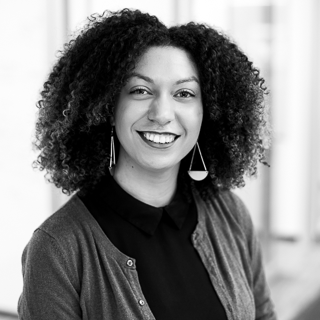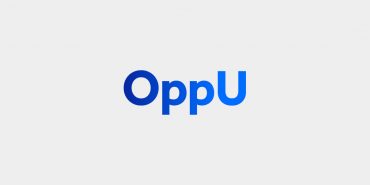Financial Literacy Books

Sadly, free financial education can be hard to come by. Without a doubt, there are many organizations doing great work, and high schools are increasingly incorporating financial literacy courses into their curricula. But where do you go if you don’t have access to these resources?
How about a book?
It may seem old-fashioned, but books are a great way to boost your financial literacy. They’re in-depth, authoritative, and they let you learn at your own pace. Also, a new wave of authors have embraced a distinctly modern approach to personal finance, so the information is up-to-date and in touch with the times.
We asked financial planners, educators, and counselors what financial literacy books they’d recommend for a TBR list. Here’s what they had to say.
Financial literacy books to understand the basic concepts of personal finance
- Title: "Dave Ramsey’s Complete Guide to Money"
Author: Dave Ramsey
Recommended by: Dr. Tim Wiedman, Certified Financial Planner Described as a financial primer for novices, Dave Ramsey’s book comes highly recommended by Wiedman for those “who want to master the 'nuts & bolts' of personal finance.”Ramsey has authored seven best-selling books on personal finance and is one of America’s most-trusted authorities on all things money. The book is comprehensive, yet easy to understand. Readers will learn about the concepts of budgeting, saving, investing, and debt. They’ll also receive actionable steps for building an emergency fund and understanding mortgages. - Title: "Dave Ramsey’s Financial Peace University: 91 Days to Beat Debt and Build Wealth!"
Author: Dave Ramsey
Recommended by: Patti Black, Certified Financial Planner Another Dave Ramsey classic, "Financial Peace University," “teaches the basics of getting out of debt, saving for emergencies, investing, etc.,” said Black. - Title: "The Millionaire Next Door"
Author: Thomas J. Stanley
Recommended by: Patti Black, Certified Financial Planner This “timeless financial” book benefits readers of all ages but is especially useful for those new to navigating their finances.“If you learn these financial principles in your 20s, you will have a much higher likelihood of achieving financial independence,” Black said, adding that “the sooner you learn big hat, no cattle the better!” Spoiler: this idiom refers to the book’s main lessons, which are prudence, thrift, and modesty.
Financial literacy books to change your money mindset
- Title: "Your Money or Your Life"
Author: Vicki Robins
Recommended by: Michael Outar, founder of Savebly Outar’s favorite financial book is "Your Money or Your Life" because “it falls into the category of self-awareness,” he said, adding that "it can be used to shift your mindset about money permanently.”Outar recommended this financial book to beginners ready to change their financial life, since the first thing you need to do is change your mindset about and relationship to money.“Robins lays out how the conventional norms of society are designed to keep you in the rat race,” Outar said. “You are essentially stuck in a cycle of making money just to spend money.”
Financial literacy books to empower women
- Title: "Secrets to Six-Figure Women"
Author: Barbara Stanny
Recommended by: Kassandra Dasent, Certified Financial Education Instructor Dasent encouraged female underearners, in particular, to read Barbara Stanny’s book, "Secrets to Six-Figure Women."“This book helps women to discover what are the root causes for why they are underearning, and learn strategies evidenced by women who are experiencing financial success in order to earn more,” she said.What is an underearner? It’s a worker who has a high tolerance for low pay. More simply, it’s someone who is deprived of the fair pay that they deserve, negatively impacting their self-esteem, happiness, and financial freedom. - Title: "A Course in Financial Miracles"
Author: Barbara Stanny
Recommended by: Jenny Smith, Certified Financial Planner Smith recommended another one of Stanny’s books aimed toward women. Her pick, "A Course in Financial Miracles," is one of her all-time favorite finance books “as it dispels the myth that success is determined by your income.”“Stanny argues that women can achieve financial success on [their] own terms,” Smith said. She was “heavily influenced by Stanny's thinking early on in [her] career and the message of this book still resonates with [her].”The popularity of the book lies in Stanny’s argument “that you can be financially successful while staying true to your values.” - Title: "Saving is Sexy (Changing the Way Young Women Look at Money)"
Author: Alice Wood
Recommended by: Deborah Sawyerr, expert money literacy educator “As a woman, our approach to finance differs to that of men for reasons such as our upbringing, culture, family circumstances and more,” said Sawyerr. She recommended Wood’s book because it includes important topics such as “applying the laws of attraction to personal finance,” in addition to helping “young women prepare themselves for independent living—from singledom to marriage to kids and even retirement.” - Title: "Money: The Root of Domestic Violence"
Author: Deborah Sawyerr
Recommended by: Deborah Sawyerr, expert money literacy educator Based on the author’s personal experiences, this book is a powerful and compelling reason for increased financial independence. The author talks candidly about how financial disharmony contributed to the domestic violence in her marriage, providing a look at the uglier truth of and necessity for gender-specific financial freedom.“It is a self help book designed with women in mind so that in the event that domestic abuse sets in, women are well equipped to get on with their lives without worrying about how to provide for themselves,” Sawyerr said.Tapping into the intersectional lines of gender and race, the book also “touches on the impact of African culture and meaningless taboos that [center] around domestic abuse and finance.”
Financial literacy books to manage a business
- Title: "The Courage to be Profitable: Get and Stay Profitable in Less than 30 Minutes a Month"
Author: Ruth King
Recommended by: Ruth King, entrepreneur “The Courage to Be Profitable” explains the methods, templates, and analysis that company owners and entrepreneurs need to grow their businesses profitably. It was named one of the 37 best books on how to run a successful business. This book is great for financial literacy and “explains financial statements in English rather than accounting babble,” said King.
Financial literacy books to teach K-12 students about money
- Title: "Media, Money, and Me" book series
Author: Jim Wasserman
Recommended by: Jim Wasserman, retired teacher of economics and media literacy A three-book series, “Media, Money, and Me” is designed to teach elementary, middle, and high school students about behavioral economics, media literacy, and financial literacy. The first book for middle schoolers came out in February 2019, and the next two are due out in August (for high school students) and December (for elementary school students).“Although promoted for school kids, they really are great for any age who needs to get a firm understanding of the building blocks to financial literacy: 1. basic economics, 2. behavioral economics (the psychology of consumerism), and 3. media literacy (how our consumer and financial decisions are nudged by media),” Wasserman said. “The book invites people to consider their Holy GRAIL (Gender, Race/Ethnicity, Age, Income, Lifestyle) situation as a consumer.”The book series has already been endorsed by Tim Ranzetta of Next Gen Personal Finance and Jonathan Clements of Humble Dollar, along with media lit organizations.
Financial literacy books to help young adults become financially independent
- Title: "The Financially Independent Millennial"
Author: Rick Orford
Recommended by: Rick Orford, personal finance expert The “Financially Independent Millennial” shares how an ordinary millennial became a millionaire by the age of 35. It breaks down the steps to financial freedom and ultimately financial success.“Warning: reading this book and following the advice within can result in a 7-figure net worth!” joked the author, Orford. Within the book he outlines the following personal finance topics:- How to create and maintain a budget.
- How to cut expenses and create a monthly surplus.
- How to examine and improve cash flow.
- How to properly borrow money.
- How to buy and sell real estate for a profit.
- How to build and sell businesses.
- How to invest in stocks. - Title: "Financial Freedom: Breaking the Chains to Independence and Creative Massive Wealth"
Author: Chase Lawson
Recommended by: Chase Lawson, professional accountant and financial coach Written by a relatable 26-year-old, “Financial Freedom” draws on the author’s journey to repay $23,000 in debt and is presented in easy-to-understand language. It provides substantial value and information that would be useful to millennials, young adults, and teens.“It’s a helpful and engaging book geared toward becoming financially free and achieving a lifetime of prosperity,” said the author, Lawson. The book contains “tips and strategies towards overcoming debt, budgeting, etc.” It’s a must-read “for teens and young adults coming up into the real world and needing real life skills,” he said.
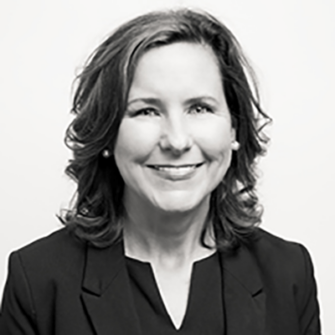
Patti Black has more than 20 years of experience helping affluent clients align their goals and their money. This work is especially important in times of transition such as starting a family, sending children to college, changing jobs, or retiring. Black develops a customized financial plan that incorporates the clients’ needs, wants, and wishes while addressing employee benefits, income tax, insurance, investments, cash flow, and estate planning. She practices in a fee-only environment and is confident that the advice she gives is objective and geared towards her clients’ best interests. You can find her at Bridgeworth, LLC.
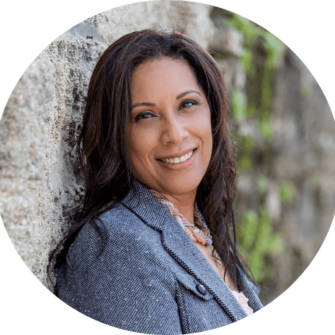
Kassandra T. Dasent, CFEI, is a Certified Financial Education Instructor (CFEI), certified credit analyst, personal finance expert, and owner of Minding Your Money. “Minding Your Money” is what Kassandra Dasent specializes in. Focusing on how emotional awareness can have a direct and lasting impact on one’s relationship with money, she successfully communicates to her audiences practical solutions that will help them to achieve financial stability, wellness, and wealth. To learn more, visit KassandraDasent.com.
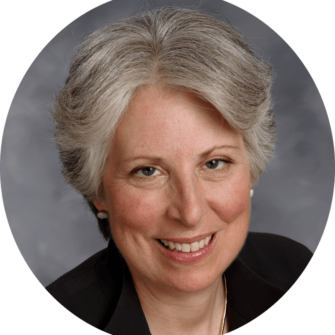
Ruth King, the Profitability Master, is a serial entrepreneur owning or having owned eight businesses since 1981. She has a passion for helping businesses get and stay profitable utilizing the latest technology that makes sense to use. Her latest book, “The Ugly Truth about Cash,” was named as one of the 37 books all startups should read by London-based Fupping. To learn more, visit www.ruthking.info.
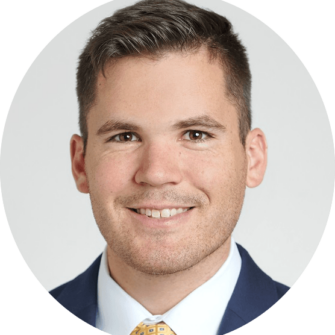
Chase Lawson is a graduate of Clemson University where he received bachelor of science degrees in accounting and financial management and a master’s in professional accountancy. While in school, he ran a successful six-figure business while helping coach and lead fellow college students. Finance has always been a focus of his, having started investing at a young age, and he is passionate about helping others achieve financial independence. He's overcome over $20,000 of personal debt and a credit score in the 500s to being a homeowner in Austin, Texas, with multiple income streams and a credit score in the high 700s.
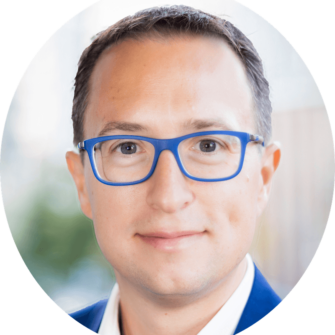
Rick Orford is a personal finance expert and best-selling author of “The Financially Independent Millennial.” He is also the co-founder of SurplusAcademy.com, a community-based resource offering sound financial advice.

Michael Outar is the founder of Savebly, a blog about personal finance and personal development. Through self-education, he was able to pay off $24,000 in student loans before 24 years old! Outar believes that if you educate yourself on personal finance and make simple lifestyle changes you can drastically improve your financial life.
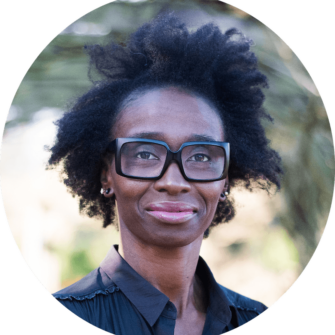
Deborah Sawyerr is an expert money literacy educator for kids, young adults, and adults. She educates learners and clients on how to be financially fit through simple everyday savvy tips, tricks, and strategies. Sawyerr is the brand owner of Sawyerrs’ House and Sawyerrs’ House Foundation for Young Persons. She is also an international public speaker, Amazon-published writer of three financial books, a money blogger, and podcaster. You can find her on LinkedIn at @Sawyerrshouse.
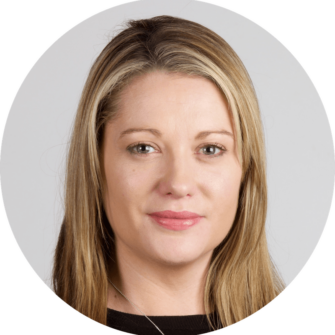
Jenny Smith is a Certified Financial Planner (CFP) and founder of the blog, MoveToNewZealand.net, which provides free advice on how to save time, money and headaches when making the big move down under. Jenny has been featured in leading publications including Readers Digest, MSN, Travel Awaits, AirHelp and many other publications.

Jim Wasserman taught economics and media literacy for over 20 years. Retired from the classroom, he continues to write on education, economics, media literacy, and financial literacy. He has a three-book series, “Media, Marketing, and Me” (teacher’s guides for introducing media literacy and behavioral economics to elementary, middle, and high school students) coming out this year. With his wife and two feline overlords, he also maintains a blog, yourthirdlife.com, about wandering and wondering about the world in retirement.

Timothy Wiedman spent 13 years in operations management working for two different Fortune 1000 companies. Dr. Wiedman spent the next 28 years teaching college courses in management and human resources. He holds two graduate business degrees, earned a professional certification in financial planning at Old Dominion University, and often taught a college course on personal finance.

